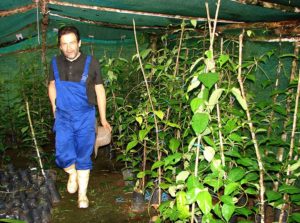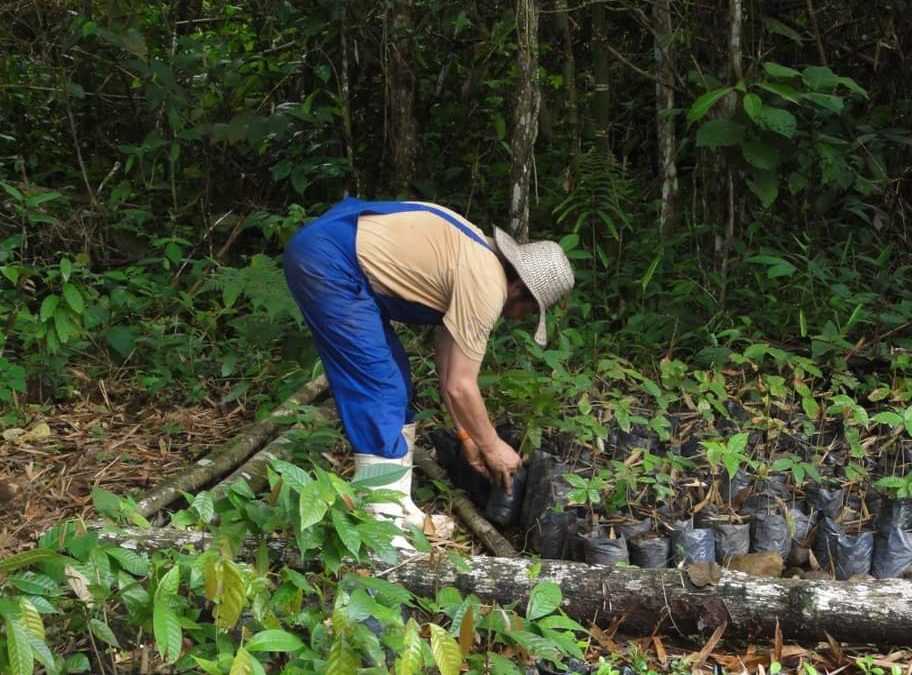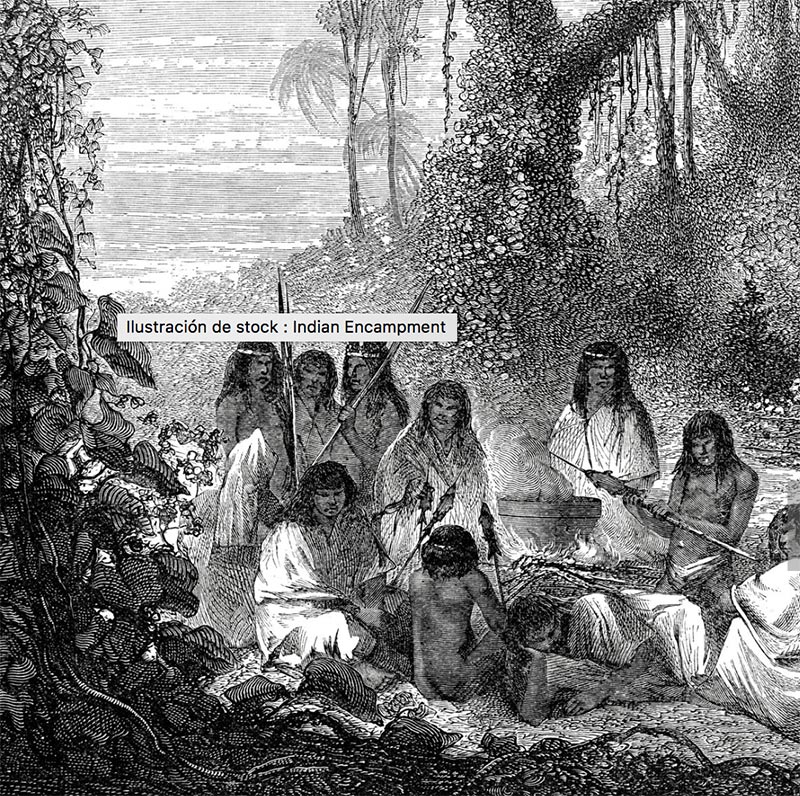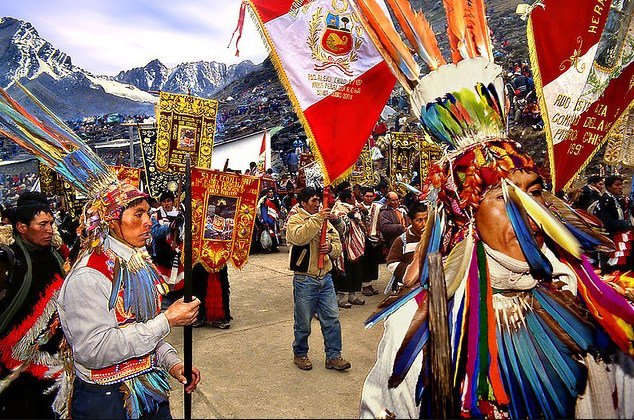Interview about the coronavirus, from the perspective of the Andean tradition to Dr. Pío Vucetich Núñez del Prado
Understanding the COVID 19 Epidemic An Indigenous Amazonian Perspective
Scientists argue that many of the viruses that make humans sick often find their origin in animals: The avian flu pandemic originated in 1876 and exploded in the world in 1997, it stemmed from birds and chickens. The Acquired Immune Deficiency Syndrome (AIDS) originated from chimpanzees in 1986. SARS coronavirus syndrome (2002) came from bats. The swine flu pandemic (2009) came from pigs, and the coronavirus COVID19 (2019) spread from bats and pangolins and thus infected humans.
For this reason, the virus carriers come from the same place. This is where the theory that the coronavirus originated in a wet animal market place came from, and it makes sense. The Wuhan market in China and the bloody nature of this crowded market place of people and wild animals being slated for slaughter makes them the most likely unculprit. It is a humid place, the type of place where live animals are cruelly slaughtered for consumption. The animals are kept in cages for months in terrible conditions where they are exposed to excrement, blood and fluids from other species, and in this way, passing the virus from one species to another until it infects humans.
The fact that some animals see how other animals are killed, the processes of industrialized rearing, the torture and the suffering to which they are subjected denotes mistreatment and cruelty. In Quechua it is called Ñakaq.
In the Andean tradition, there is no ecological or environmentalist ideology as in the western world, but we know that avoiding the suffering of people, animals and plants, and showing respect for life in its entirety, is a guarantee of life for us and generations to come.
In the indigenous world, raising animals for human consumption must be worthy and their subsequent slaughter must be carried out in a way that causes the least possible suffering. The fastest and easiest way must be sought so that the animal is not tortured in this process. It is not about not killing the animals; it’s about doing it in an ethical way. First, wildlife should be left alone and second animal cruelty should be avoided at the time of slaughter.
The Ñakaq is a Quechua Inca principle that talks about what happens when respect for animals, plants (Kutipaq) and life is broken extreme suffering is caused. This principle is very important because when the animals are treated with cruelty and endless torture, causing their death, the soul of these suffering animals, in order words their energy is returned to the victimizers, in a form of a «curse».
The Ñakasqa is a recognition of what happens when we cause extreme mortal suffering especially in animals and the energetic consequence on the executors. This provoke a reaction on the anima of the animals and thus in on our own anima. In other words, the transgression returns to the victimizers and this becomes disease and calamity. This is the way in which the origin of the coronavirus can be explained from the Andean-Amazonian perspective.

How can we repair the damage?
The torture of animals, the burning of primary forests, plants and protected spaces must be stopped in order to establish a positive coexistence with them. Cleaning work must be done for the land; «Juchamijuy», air cleaning techniques «Saminchacuy», fire cleaning techniques «Ninamijuy» and water cleaning techniques «Cochamijuy.» One can also perform reparative offerings to the land, chains of prayer and meditation, songs, dances and spiritual pilgrimages along the indigenous paths of inclusiveness such as the pilgrimage to the Lord of Ccoilluritty, Lord of Huanca, Taytay de los Temblores, Mighty Captive of Ayabaca, Lord of Miracles, Cruz de Motupe and others.
From the Andean-Amazonian world view the specialists, teachers who work with the elements in their towns, at a regional, national or international level, should form a joint network of concrete energy work. Good thoughts or good intention are not enough, there has to be a base energy work to sustain it and a corresponding action to repair the damage. This is the fundamental base.
Are these spiritual techniques enough to reverse the damage caused?
No, and I will explain why below.
The Andean-Amazonian worldview has a principle: inclusivity, and Western culture is exclusive. We live in a permanent state in which we want to eliminate the adversary and we repeat this attitude with nature. We perceive it as indestructible, we destroy everything. We burn millions of hectares of forests, vast territories that inhabit countless animals, plants, insects and its unique microbiology. Animals die burned alive, as do plants, and they have their own sensitivity. We burn and destroy everything and with this we cut the branch, the lifeline that supports them and supports us. Exclusion is a disease.
This inclusivity of the Andean worldview implies that there is a world for everyone. That all of us with our differences can have a space within life and that animals also have their own place. We do not have to fight with ourselves or with what surrounds us, instead we need to learn to live together without eliminating the perspective of the other and at the same time improving our own.
Another important principle in the indigenous world is the fact that the subject is not separated from the object. Munay (driving energy that flows from within, restorative and reciprocal towards one, the others and nature). Llankay (power of consciousness and liberating action from the Munay that repairs, synchronizes and unifies the person (coherent action) and integrates it into the whole). Yachay (knowledge and understanding from the Munay and Llankay that directs and regulates human life and leads us to wisdom and unity); these instances are integrated, that is, the internal process and the process of working in the world are not separate.
We need to become aware of what we are doing. From the indigenous perspective, spiritual work must be translated into concrete events, replanted trees, in assigning specific spaces for coexistence with other living beings and nature. This implies increasing your consciousness and contributing with others doing the same. The internal always translates into concrete contributions at the external level.
For example, among the millions of inhabitants of the planet, we could make a network of volunteers and buy areas of the Amazon that have been devastated and allocate them to their recovery, that is, individually, do specific reforestation work with minimum economic contribution of each inhabitant, a concrete action of everyone who is aware of this problem and wants to do something about it.
We can think that meditating is the solution for the world against this virus. Raise the consciousness of humanity or, as some say, raise the frequency level of the planet and thus connect with enlightened energies is not enough. Focusing only on the spiritual realm won’t be enough if it is not complemented by solid work and actions that help improve the world. Collective meditation and prayer chains are positive and useful, but we must also assume our responsibilities of improving and repairing the damage. This means integrating the human essence with the existence of the world.
Assuming this personal responsibility will activate the formation of networks of consciousness and the way in which they unite throughout the world. These networks start from a personal, family, regional, national and international consciousness. In this way they can gradually articulate their actions and make specific acquisitions or contributions to recover everything that has already been destroyed, that is, the essence. Both spirituality and taking action to improve the world must be integrated.
Regarding global isolation and quarantine, what advice would you give to take advantage of this moment of unemployment?
The consequences of this virus has made many people sick, some of them are dying and a good part of humanity is paralyzed. Many of the healthy people have been confined inside their homes and many others have been forced to remain isolated outside their homes. It is a difficult situation since it is not possible to carry out daily activities, in addition to the economic limitations and the suffering caused by the confinement. In short, we are experiencing a chain reaction of suffering from this «plague», this virus. These moments of seclusion can be used to internalize the life process in each one of us. Thus we can leave this reflective stage with clearer and more concrete actions that can contribute to the repair of all the damage we are doing, not only to ourselves but to other species like the animals, plants, water, air and land. In other words, we have a challenge to stop being predators and return to being part of the universe. This lesson should serve us to become aware not only of what we are doing wrong, but also of everything that we already have which is right, we must become aware that there are situations that have been much worse in the past and that are now beginning to improve, for example, some countries in the world today take into account the conservation of nature within their national policies.
These are the lessons that we must incorporate and teach the rest of the world to act based on your internal awareness and from personal contribution. This is how things get better. This is what I learnt from the indigenous teachers with whom I shared and received the teachings of the tradition. I was born in Paucartambo, a town where legacies, living traditions, and ancient cultures are preserved and their contribution is still vital to the solution of serious problems of the present and future world.
Pío Vucetich Núñez del Prado
Director of the Sacha Q’ente Association
sachaqente@gmail.com
Facebook: Sacha Q’ente



